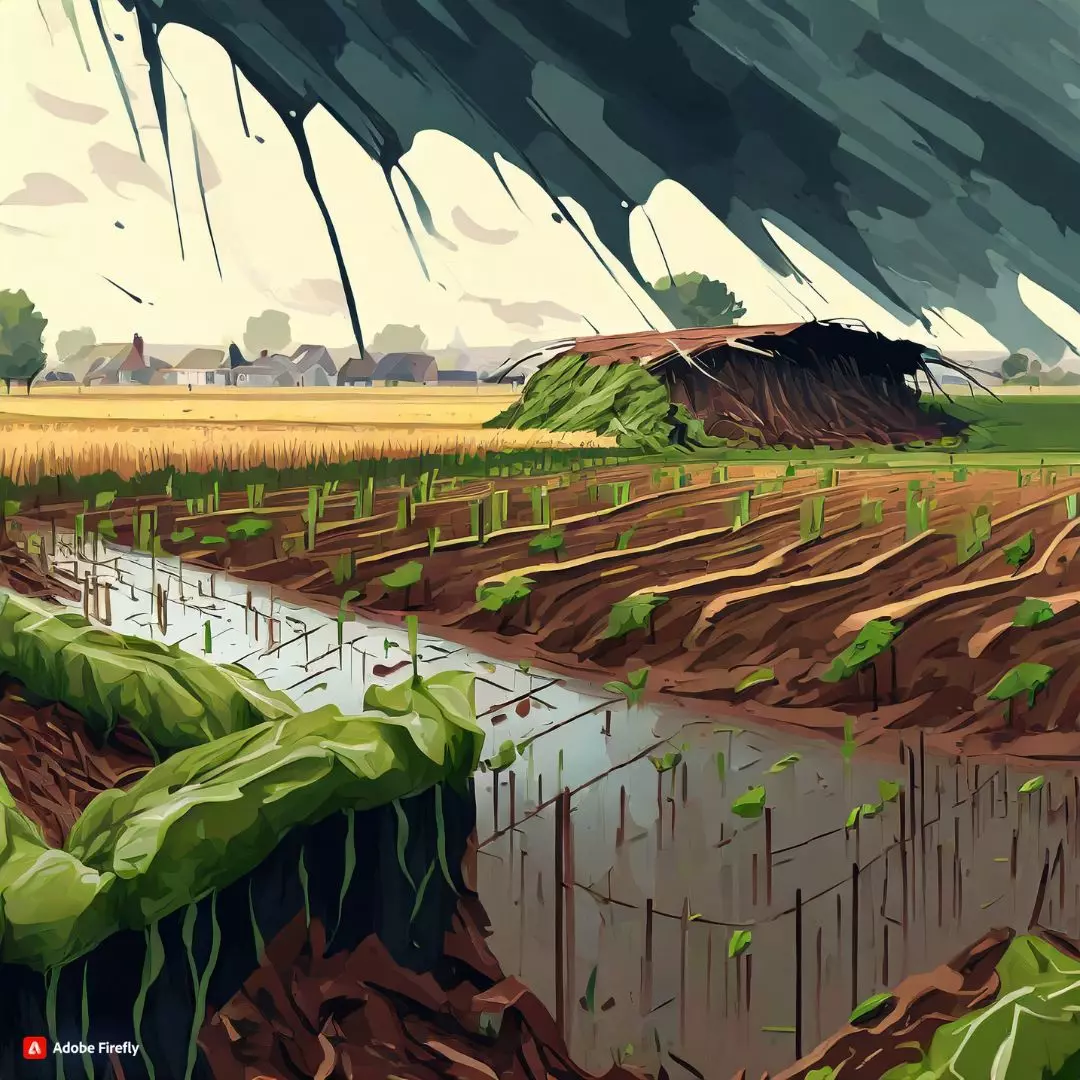In the sprawling expanse of India’s agricultural canvas, a silent but potent force is at play — climate change. The intricate dance of temperature shifts, altered rainfall patterns, and the looming specter of extreme weather events pose unprecedented challenges to the nation’s agrarian backbone. As the Government of India engages in a proactive response, implementing measures and initiatives to fortify the agricultural sector, this article delves into the multifaceted repercussions of climate change on Indian agriculture and the comprehensive strategies being employed to mitigate its far-reaching effects.
Acknowledging the looming threat, the Government of India has orchestrated extensive field and simulation studies across the nation. These studies employ crop simulation models, projecting potential scenarios for 2050 and 2080. The disconcerting projections indicate that without adaptation measures, rainfed rice yields could diminish by 20% in 2050 and a staggering 47% in 2080. Simultaneously, irrigated rice faces a reduction of 3.5% in 2050 and 5% in 2080. Wheat yields are not spared, with a projected decline of 19.3% in 2050 and a substantial 40% in 2080.
Government Schemes and Resilience Initiatives
In response to this pressing challenge, the National Mission for Sustainable Agriculture (NMSA) emerges as a beacon within the National Action Plan on Climate Change. Parallelly, the ‘National Innovations in Climate Resilient Agriculture’ (NICRA) project, spearheaded by the Indian Council of Agricultural Research (ICAR), was launched in 2011. NICRA aims to usher in climate-resilient technologies, with a focus on vulnerable areas grappling with extreme weather conditions such as droughts, floods, frost, and heatwaves. Since its inception, NICRA has yielded 1888 climate-resilient varieties and 68 location-specific technologies.
Climate change is not confined to national boundaries; it’s a global phenomenon. India, with its significant agricultural contribution to the GDP and employment sector, stands at the forefront of this battle. The transformative impact extends beyond reduced crop yields, affecting soil quality, water resources, and pest prevalence.
India’s vast expanse, diverse climate, and dependence on monsoons intensify the challenges posed by climate change. The temperature has already risen by 0.68 degrees Celsius, leading to shifts in precipitation patterns, an increase in floods, and a faster retreat of Himalayan glaciers. Wheat and rice, critical staples in Indian agriculture, face projected yield reductions.
Adaptation and Mitigation Strategies: A Comprehensive Approach
Mitigating the impact of climate change necessitates a multifaceted strategy. The adaptation and mitigation strategies include developing climate-resilient crop varieties, revisiting gene banks for unique traits, and implementing better water and nutrient management practices. The NICRA program, comprising strategic research, technology demonstration, and capacity building, plays a pivotal role in fortifying agricultural resilience.
In the labyrinth of climate change and its complex interplay with Indian agriculture, the nation is not merely a spectator but an active participant, deploying innovative solutions and embracing sustainable practices. The National Initiative on Climate Resilient Agriculture (NICRA) emerges as a testament to India’s commitment to safeguarding its agrarian heritage. As the agricultural landscape evolves, the resilience initiatives and ongoing research underscore the nation’s determination to secure food security in the face of a dynamically changing climate. The path forward demands a harmonious blend of adaptability, scientific advancements, and an unwavering commitment to nurturing the very roots of India’s sustenance.
Also Read: Indian Health Authorities Restrict Popular Cold Medication For Children Under Four











